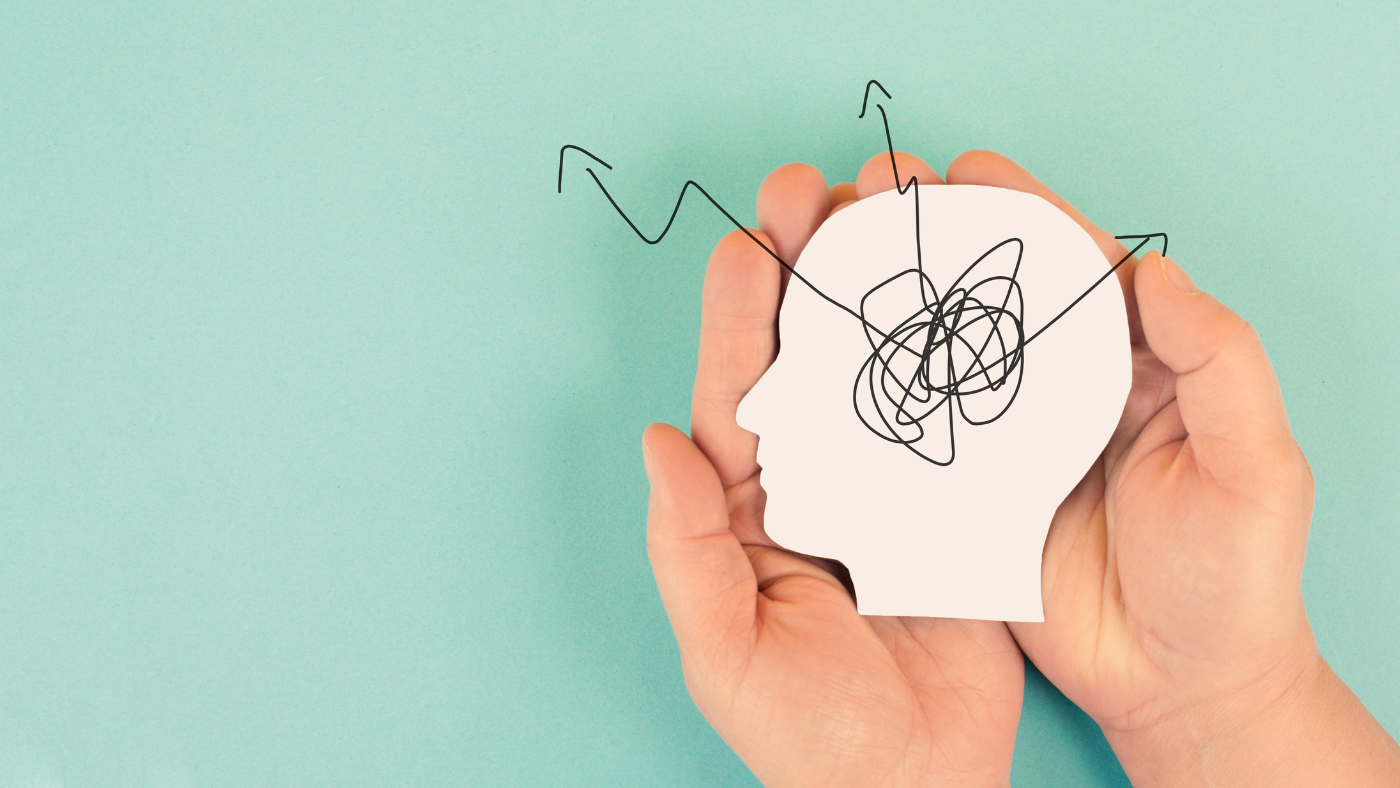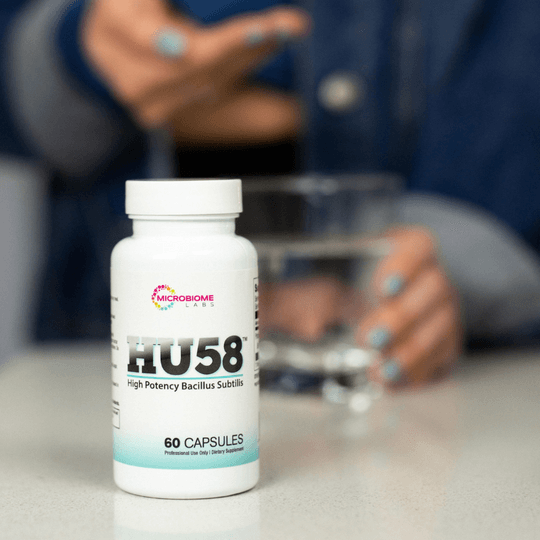Setting Your Body Up for Success for BHRT
Presented by Immanence Health
Written by Heathar Parisi, FNP-C
Bio-identical Hormone Replacement Therapy (BHRT) is a personalized and tailored approach designed to harmonize with individual hormonal and health needs. It utilizes hormones structurally identical to those naturally produced by the human body, often referred to as body-identical hormones. BHRT is commonly associated with Menopausal Hormone Therapy (MHT) and is employed to address various hormonal imbalances and transitions, including perimenopause, menopause in women, and andropause in men.
“My regular routine that has always worked is no longer dropping a single pound.” or “No matter what I do, I can’t lose this belly fat!”
It’s not that what you’re doing is wrong. No amount of exercise and dieting will change the situation when things are off kilter in this way. Using estrogen in menopause can counteract the effects of excess cortisol and hence lead to reductions in overall stress and a healthier metabolism.
The endocrine system is like a symphony and if one instrument is out of tune, it affects the entire performance. So, as you might imagine, it is imperative to work with a medical provider who has specialty training and is well-prepared to assess and analyze your personal situation while designing an effective program that considers all aspects of health.
In this blog post, we'll delve into the specific steps for getting your body ready for bio-identical hormone therapy, including detoxification, lymph drainage, nutrition, and avoiding endocrine-disrupting chemicals. Preparing your body for BHRT is essential for maximizing the benefits and minimizing potential risks.
Consult with a BHRT Specialist:
Before diving into the selection process, invest time in research. Seek out credible sources of information regarding BHRT. Start your journey by consulting with a healthcare professional who is experienced and specializes in the use of bio-identical hormone replacement therapy and is licensed to prescribe in your state. Ensure that they have the necessary medical qualifications and have received additional training in BHRT. This part of the process is vitally important because a 2019 survey study published in Mayo Clinic Proceedings reported that only 6.8% of the physician respondents from family medicine, internal medicine, and obstetrics and gynecology specialties said they felt adequately prepared to manage women experiencing menopause with 20 percent reporting they had not received even one lecture on the topic during residency. My hormone pharmacist colleague, Steve Goldring goes into depth on some of these issues in his YouTube video You've Been Lied To.
Learn More from the Mayo Clinic Here!
Look for training with respected organizations like the
Institute of Bioidentical Medicine (IOBIM) and the
American Academy of Anti-Aging Medicine.
A dedicated hormone specialist will evaluate your hormonal status based on a thorough initial consultation, your current symptoms, an analysis of your bloodwork and other professional laboratory tests as well as guiding your personal health goals. A treatment plan is curated to meet your unique needs. BHRT is highly individualized, making this partnership with your medical provider a critical step to ensure the best results no matter what stage of life you find yourself in. You are the CEO of your body and are responsible for hiring the right help. Consider interviewing a few candidates to see what kind of feeling you get from them. Ask questions and if you don’t get answers that resonate, move on to the next one. Your gut always knows.
Detoxification for Hormone Balance:
Hydration:
Adequate fluid intake plays a crucial role in maintaining hormone balance, and this is especially significant when it comes to hormone detoxification. Hydration isn't just about quenching your thirst; it serves as a linchpin for several essential bodily functions. Getting in your daily dose of water provides the right hydration balance to ensure healthy blood flow to the organs of elimination and detoxification. A well-hydrated body supports healthy digestion as well as facilitating the processes of liver detoxification. Drinking plenty of filtered water especially with minerals & electrolytes throughout the day promotes the elimination of toxins through urine, stool and sweat. In addition, the lymphatic system needs a good supply of fluid to wash toxins out of your cells. Everyone’s water requirements are unique but to start, aim to drink half your body weight in ounces of water each day. Adding lemon, which is an alkaline, is a great addition. Non-caffeinated herbal teas are another creative way to enjoy your morning beverage and keep hydrated while giving a little extra nourishment.
Exercise:
You may have heard, "Sitting is the new smoking". Any extended sitting, such as at a desk, behind the wheel of a car, or in front of a screen is not doing your body any favors and in fact, over long periods can cause harm. I know, I know… it’s really a challenge these days with so many of us working online or primarily from home to avoid this but, if you put in the intention and set up some basic strategies, it will stick. After a few weeks of developing this habit, our body will desire to get up and move about, even if only for a few minutes. One of the shared traits of the longest-living people from the 5 blue zones is natural movement all throughout the day. Researchers observed people from these communities moved about every 20 minutes doing things like gardening, cooking, housework, socializing, and “walking” their errands.
It makes sense to prioritize regular movement throughout your day rather than only doing one long workout. Frequent, brief movements can help keep your metabolism active, promote flexibility and mobility, reduce stress, and boost your mood. The opportunities in our Western society might not be as generously available to structure this type of movement but most of us are undoubtedly aware of the benefits of planned physical activity. Regular exercise enhances blood circulation to your muscles and other tissues. It also heightens the sensitivity of hormone receptors, thereby improving the efficient delivery of nutrients and optimizing hormonal signaling. Exercise offers the benefits of increasing endorphins (our feel-good peptides that contribute to a sense of well-being.), improving the health of our joints and bones, and helps with managing ideal body weight. Exercise and BHRT have a bidirectional relationship. Combining these strategies can offer a more robust defense against age-related health challenges, aid in detoxification, and provide next-level results.
Sauna:
In our modern world, we encounter an array of endocrine hormone disruptors—environmental toxins and chemicals that can wreak havoc on our endocrine system. These disruptors are known to interfere with the body's hormonal balance in addition to many other health issues. But rather than feeling overwhelmed, a different approach can be to accept the situation and develop proactive detox habits. Sauna sessions can assist in detoxifying by promoting sweat and enhancing the elimination of waste products. By aiding in the removal of these toxins, saunas may indirectly support hormonal health. The Finnish culture seems to have known this (among many other northern European countries) for hundreds of years; enough time to conduct large longitudinal studies looking at statistics on the health-promoting effects of frequent sauna bathing. The beneficial effects of sauna bathing on adverse outcomes have been linked to its blood pressure-reducing, anti-inflammatory, antioxidant, cytoprotective, and stress-reducing properties and its synergistic effect on neuroendocrine, circulatory, cardiovascular, and immune function.
Santa just brought me one this holiday season and I am enjoying the daily sweat session followed by a cool shower. Check out additional research links at the end of the article for more on the benefits of sauna.
Lymphatic System:
Lymphatic drainage is essential for hormone balance, detoxification, and immune function. It carries away waste products, cellular debris, and pathogens from the body. By promoting optimal lymphatic flow, you assist your body with the removal of these toxins and boost its ability for optimal detoxification. As discussed, hydration, exercise, and sauna will all facilitate lymphatic health and drainage. Some other ways to assist with lymphatic drainage are dry brushing, lymphatic massage, and diaphragmatic breathing. Dry brushing involves gently brushing the skin in the direction of lymph flow. This can help exfoliate the skin and stimulate the lymphatic system. Manual lymphatic drainage can be done by a skilled therapist, or you can do it on yourself.
Lymphatic Stimulation Technique!
Deep diaphragmatic breathing is easy and helps ease you into a parasympathetic state as a bonus. You can do this sitting or standing. Place one hand on your chest and the other on your abdomen, just above your navel. Inhale deeply through your nose, allowing your abdomen to rise as your diaphragm contracts. Hold the breath for 5 seconds. Exhale slowly through your mouth, emptying your lungs completely. Focus on making your abdominal hand rise and fall with each breath while keeping the hand on your chest relatively still. Aim for a slow, steady rhythm, taking deep breaths for a few minutes.
Hormone-Friendly Nutrition:
Your diet plays a significant role in BHRT success. Nutrient-rich foods can help optimize hormone levels and ensure a healthier response to the therapy:
- Phytonutrients: Consuming foods rich in phytonutrients like berries, leafy greens, and green tea can support hormone balance and reduce inflammation.
- Healthy Fats: Incorporate sources of healthy fats, such as coconut oil, olive oil, tallow, and fatty fish, like wild salmon & sardines. These fats are essential for hormone production. Remember that our brains are 60% fat! This fat must be obtained from dietary sources because it cannot be synthesized by the body. Our nerves and noggin need fat obtained from organic and clean dietary sources. In addition, it's important to reduce the intake of unhealthy fats like omega-6 EFAs. These are known to increase circulating levels of inflammatory arachidonic acid (AA) which can promote heart disease, cancer, and most chronic diseases. The list of Omega-6 EFAs is long but some of the more common ones used in the food industry are; industrial safflower, sunflower, corn, soybean, and canola. Organic cold-pressed seed oils are fine to use on occasion, however. Also, seed cycling with organic seeds is a lovely way to incorporate healthy fats, minerals, and other nutrients into your routine if not regularly, then seasonally.
- Fiber: A high-fiber diet can aid in the regularity of the bowel and is the last step in the elimination of excess hormones from the body. If you’re regularly constipated this will have an effect on maintaining hormonal wellness.
- Probiotics: Gut health is connected to hormones in many ways. Maintaining a healthy terrain in your gut with a rich, biodiverse microbiota will support proper hormone metabolism. Try adding probiotic-rich foods like yogurt, kefir, and fermented vegetables to your diet. For extra support, a pre and probiotic supplement can help.
Sleep:
Sleep is a time when the body focuses on growth, repair, and regeneration. Sleep volume and quality are critical components of overall health and well-being and directly influence the balance of hormones in the body. Sleep is essential to regulate all hormone production, release, and activity. The body follows a circadian rhythm, and different hormones are released or suppressed at specific times during the day and night. For example, growth hormone and melatonin are primarily produced during deep sleep, while cortisol (a stress hormone) follows a diurnal pattern, with its highest levels in the morning. Sleep is particularly vital for women going through menopause. Significant hormonal changes, particularly a decline in estrogen and progesterone, can lead to a range of physical and psychological symptoms, including hot flashes, night sweats, mood swings, and insomnia. These disrupt the sleep-wake cycle and impact sleep quality, making it challenging to achieve restorative sleep. BHRT can lead to significant improvements in sleep architecture in perimenopausal and postmenopausal women. When hormone levels are stabilized and symptoms like hot flashes are reduced or eliminated, it's easier for women to sleep through the night without frequent awakenings. This seems obvious but when you’re in the throes of these hormone deficiency symptoms combined with sleep deprivation, it can feel like there’s no way out of the madness, but I promise, there is. BHRT can also address mood-related disturbances, making it easier to fall asleep and stay asleep because you’re not staring at the ceiling lamenting over something out of your control. Most adults need 7-9 hours of sleep per night. There are exceptions in some individuals, but these folks are extremely rare. A good night's sleep isn't just a luxury – it's a vital investment in your health and well-being to boost your resilience and enjoy the journey to a healthier, happier you.
Avoid Endocrine-Disrupting Chemicals:
Endocrine-disrupting chemicals (EDCs) are substances that can interfere with your hormonal system. Xenoestrogens are found everywhere, such as BPA in food packaging and water bottles, phthalates in most body care products, and atrazine in conventional landscaping. While we can’t completely avoid these hormone-damaging toxins, we can significantly reduce our exposure to them. Awareness is key. To prepare for BHRT, it's crucial to minimize exposure to EDCs:
- Choose organic produce to reduce exposure to pesticides.
- Use BPA-free plastic containers and avoid microwaving plastic. Bring your own produce bags that are made of cotton, linen, or other healthy fabrics.
- Select personal care and cleaning products free of harmful chemicals, such as parabens and phthalates.
- Use a chlorine filter on shower heads and filter drinking water.
- Opt for hormone-free meat and dairy products to avoid the hormones commonly used in industrial farming.
Your mood, stress resilience, and physical health are all important for your overall wellness. If you aren’t feeling your best, bio-identical hormone therapy can be a powerful means of restoring hormonal equilibrium and enhancing the way you feel about yourself. However, it involves more than just applying transdermal hormones to your skin. To prepare your body effectively for this transformative therapy, you’ll need to engage in a holistic process. This process encompasses participating in regular detoxification activities, learning about the lymph system and why drainage is a must while on BHRT, pre-planning thoughtful hormone-friendly nutrition, assuring sleep is a priority, and minimizing exposure to endocrine-disrupting chemicals.
By making your health a top priority, arming yourself with informed choices, and proactively taking these steps, you are on your way toward improved health and profound enhancement in your overall quality of life, well-being, and energy. Your commitment to this protocol and a new way of life holds the key to unlocking your potential for transformation.
For a comprehensive and successful approach, it's essential to work closely with a knowledgeable hormone specialist who can guide you through this process. With their expertise, you can set yourself up for success, not only during menopause but well beyond.
Additional Links:
Detoxification through sauna use:
https://pubmed.ncbi.nlm.nih.gov/22505948/
Postmenopausal Women:
https://academic.oup.com/biomedgerontology/article/58/3/M266/684131
Reducing omega 6 consumption for protection against chronic inflammation:
https://pubmed.ncbi.nlm.nih.gov/19022225/
Healthy sleep and a reduction in all-cause mortality:
https://www.ncbi.nlm.nih.gov/pmc/articles/PMC2856739/
Avoiding EDCs in menopause (and at any stage in life!):
About Heathar Parisi, FNP-C
Advanced Nurse Practitioner, Heathar Parisi, is a women’s health and hormone expert. As a family nurse practitioner, herbalist, and functional medicine provider, she uses a holistic approach when treating women in perimenopause and menopause, always keeping connection and humor as the centerpiece of her interactions. She has specialty training in the Menopause Method for the use of BHRT through the Institute of Bioidentical Medicine (IOBIM). She is a mother of three and resides in Scottsdale, AZ with her family. Consultations are available through Immanence Health.
To learn more about working with
Heathar Parisi, FNP-C
in person or virtually (US and Worldwide), set up a free discovery call with our team.
Disclaimer: this post is for informational purposes only and is not meant to treat, diagnose, cure, or prevent any disease. Please do your own research and consult with your own personal licensed health care provider before making any treatment decisions.

Dr. Christine Schaffner
Founder / Physician
Dr. Schaffner is a board-certified Naturopathic Doctor and recognized thought leader. After graduating from Bastyr University in Seattle, Washington, Dr. Schaffner completed her undergraduate studies in Pre-medicine and Psychology at the University of Virginia in Charlottesville.
With her diverse skill set, Dr. Schaffner seeks to improve access, outcomes, and speed of recovery for patients struggling with chronic illness, from all around the world and combines both naturopathic and conventional therapies to develop individualized treatment plans that focus on addressing the underlying cause of complex chronic illness.
Dr. Schaffner is passionate about educating patients, as well as other practitioners, bringing the most advanced medical protocols to all, as well as creating spaces for healing and rejuvenation. Her style of practice is strongly rooted in traditional naturopathic principles, including removing toxins and establishing a strong health foundation in order to achieve optimal health.
You can learn more about Dr. Schaffner at www.drchristineschaffner.com.
Additional Articles



Call Now: ph (206) 659-0690
Seattle Location
1629 Queen Anne Ave N, Ste 104
Seattle, WA 98109
ph (206) 659-0690
The material on the Website is provided for general informational purposes only and is not intended as medical advice, or as a substitute for the medical advice of a physician. The statements made on this Website have not been evaluated by the Food and Drug Administration and are not intended to diagnose, treat, cure or prevent any disease.